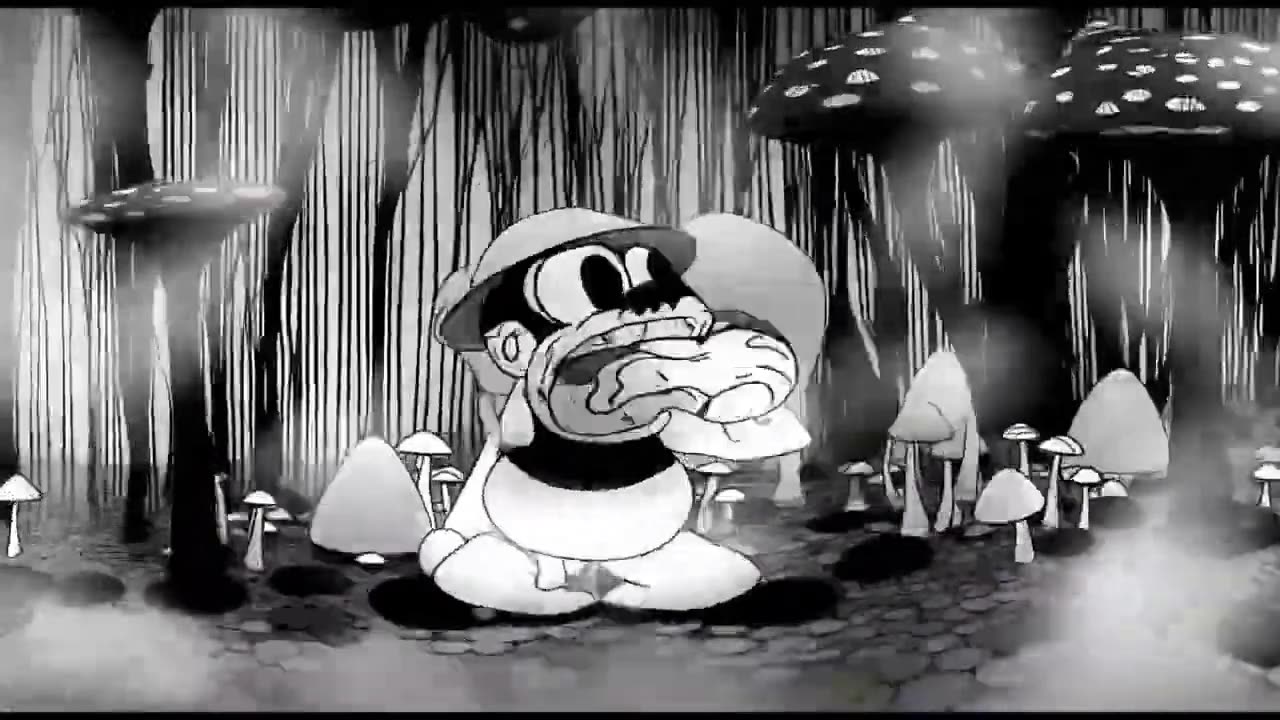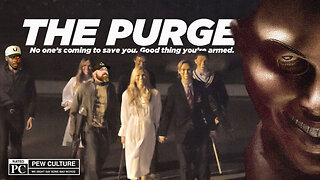Premium Only Content

Son Of A Preacher Man Spooky The Windmills Of Your Mind Dusty Springfield
Son of a Preacher Man Album: Dusty In Memphis (1969)
Spooky Single: (1968)
The Windmills of Your Mind Album: Dusty In Memphis (1969)
by Dusty Springfield
Son of a Preacher Man was written by John Hurley and Ronnie Wilkins. Dusty's version is the most popular, but it has been covered by many artists, including Elvis Presley, Bobbie Gentry, Foo Fighters, Chet Atkins, Joss Stone, and Natalie Merchant. The song was originally offered to Aretha Franklin (who is a preacher's daughter), but she turned it down because she thought it was disrespectful. She subsequently changed her mind and did a cover version of it.
Dusty Springfield was born Mary Isobel Catherine Bernadette O'Brien in London on 4/16/1939. She died in 1999 or breast cancer. Shortly before her death she was inducted into the Rock and Roll Hall of Fame and was given the Order of the British Empire (OBE).
Some famous preachers' sons: Marvin Gaye, Wyclef Jean, Tim Curry, John Hurt, John Ashcroft, Martin Luther King Jr.
The backup vocals were by a female group called the Sweet Inspirations, who were made up of Cissy Houston, Sylvia Shemwell, Myrna Smith and Estelle Brown. They were the sought-after female backup vocalists in the New York area, having performed on albums by Aretha Franklin, Wilson Picket, Van Morrison and many others. With four singers, they could create a rich, soulful sound that suited this song perfectly.
Later in 1969, the Sweet Inspirations went to work for Elvis Presley, touring and recording with him. Cissy Houston left the group at this time so she could spend more time with her children, including her young daughter, Whitney Houston.
There is a drink called a "Son Of A Preacher Man." It's made with peppermint schnapps, vodka or gin, and lemonade.
Son of a Preacher Man was used for a key sequence in the movie Pulp Fiction, which made the song popular again in 1994. Director Quentin
Tarantino said he would have cut the scene if he hadn't been able to get the rights to the tune.
The rap group Cypress Hill sampled Son of a Preacher Man at the beginning of their song "Hits from the Bong."
Jim and Tammy Faye Bakker's son Jay Bakker has written an autobiography titled Son Of A Preacher Man. The Bakkers were televangelists who were disgraced in the late '80s when it was revealed that Jim had a sexual encounter with Jessica Hahn and bilked his followers out of lots of money. Jim Bakker went to jail for tax evasion.
This was also featured in the 2000 thriller Frequency, starring Dennis Quaid and Jim Caviezel. The song is skipping on a record player in a dead girl's apartment.
Son of a Preacher Man was used in a 1997 Dr. Pepper commercial, where a preacher's son uses the soft drink to woo his crush.
In The Office episode "Baby Shower" (2008), Jan Levinson sings Son of a Preacher Man to her baby. It was also used on Sons Of Anarchy in the 2008 episode "Seeds" and on Ally McBeal in the 1999 episode "The Green Monster" (sung by Courtney Thorne-Smith).
"Spooky" is originally an instrumental song performed by saxophonist Mike Sharpe (Shapiro), written by Shapiro and Harry Middlebrooks Jr, which first charted in 1967 hitting No. 57 on the US pop charts and No. 55 on the Canadian charts. Its best-known version was created by James Cobb and producer Buddy Buie for the group Classics IV when they added lyrics about a "spooky little girl". The vocalist was Dennis Yost. The song is noted for its eerie whistling sound effect depicting the spooky woman. It has become a Halloween favorite.
A version of "Spooky" was recorded by Dusty Springfield in 1968, released as a single worldwide except in the US. This gender-flipped version was featured prominently in the Guy Ritchie film Lock, Stock and Two Smoking Barrels. Springfield's version was certified silver by BPI in 2022.
Jerry Wexler, president of Atlantic Records, heard "The Windmills of Your Mind" on the soundtrack of The Thomas Crown Affair and championed having Dusty Springfield record the song for her debut Atlantic album Dusty in Memphis, overcoming the singer's strong resistance; Springfield's friend and subsequent manager Vicki Wickham would allege: "Dusty always said she hated it because she couldn't identify with the words." During the first sessions for the track at American Sound Studio in Memphis, problems with getting the proper chords down arose, and at Springfield's suggestion the song was arranged so the first three verses were sung in a slower tempo than the original film version.
In April 1969, the third A-side release from Dusty in Memphis was announced as "I Don't Want to Hear It Anymore" with "The Windmills of Your Mind" as the B-side. However Wexler was prepared to promote "Windmills" as the A-side if it won the Oscar for Best Song, reportedly instructing mailroom clerks at Atlantic Records' New York City headquarters to listen to the Academy Awards broadcast the night of 14 April 1969. Hearing "The Windmills" announced as the Best Song winner was the clerks' cue to drive a station wagon loaded with 2500 copies of a double-sided promo single of Springfield's version – identified on the label as "Academy Award Winner" – to the New York City general post office, where the copies of the single were mailed out to key radio stations across the US. Although its Hot 100 debut was not effected until the 5 May 1969 issue of Billboard and then with a No. 99 ranking, Springfield's "The Windmills" made a rapid ascent to the Top 40 being ranked at No. 40 on the Hot 100 of 24 May 1969 only to stall over the subsequent three weeks peaking at No. 31 on the Hot 100 of 14 June 1969 with only one additional week of Hot 100 tenure, being ranked at No. 45 on the 21 June 1969 chart. On the Cash Box chart, the song rose as high as No. 22.
Local hit parades indicate that Springfield's "Windmills" had Top Ten impact in only select larger markets: Boston, Southern California, and Miami. The track did reach No. 3 on the Easy Listening chart in Billboard, a feat matched by Springfield's third subsequent single "Brand New Me" which therefore ties with "The Windmills" as having afforded Springfield her best-ever solo showing on a Billboard chart.
Dusty Springfield was born Mary O'Brien to a Catholic family in North London, England. She was considered to be a tomboy and was given the nickname Dusty because she liked to play soccer with the boys. Later, her distinctive smoky voice earned her the nickname "The White Queen of Soul." Showing tremendous diversity, Springfield recorded in numerous genres, including rock, pop, folk, and country.
Buddy Rich and soul and pop singing icon Dusty Springfield played a residency together in New York City at the Basin Street East club in 1966. Buddy Rich is known to this day for his wild temper and his tendency to behave abusively toward his own band. Per Track Drummer, a secret recording made by one of Rich's bandmates — known in some circles as simply "The Tape" — is filled with the bandleader's ridiculously profane and insulting rants directed at the rest of the band after a set and while riding a tour bus. Rich expected perfection from the people he played with, and when they didn't live up to his outsized demands, he'd explode and denigrate them at the top of his lungs. The very first sentence of a 1974 article in The New York Times about Rich's karate hobby that may have helped tame his wild temper noted Rich's reputation for screaming insults, breaking furniture, throwing cymbals, and getting in fights in the very first sentence.
Dusty Springfield had her own reputation for expecting perfection from her musical collaborators and behaving in an explosive, sometimes violent manner, although it doesn't come close to that of Buddy Rich. The 2019 Daily Express article noted her penchant for throwing food, dishes, and even her famous wigs when she was upset. A former girlfriend, singer Julie Felix, recalled Springfield once hitting her in a jealous, alcohol- and drug-fueled rage.
In an interview that ran in the British magazine Melody Maker in 1966, Dusty Springfield described her feud with Buddy Rich during their joint residency at the Basin Street East club in New York. "Mr. Rich is a little difficult to get on with — and that's the British understatement of 1966," she explained, saying that the drummer had taken up most of the rehearsal time that was supposed to apply to the both of them. This forced her to go on stage without having rehearsed half of the songs with Rich's band, who were also backing her up during her sets.
Springfield alleged that Rich was upset that she had received top billing over him during the residency and therefore attempted to sabotage her performances, including "telling the trumpet section not to play high notes for me and standing in front of the stage shouting during my act." Springfield claimed she offered to switch places with Rich and perform first, but Rich allegedly didn't like that idea either, complaining the band would then be too tired to perform well with him. She kept her top billing but said, "I'd rather be on before him because I never know what he is going to pull or what he will tell the audience about me — his introduction is very patronizing to say the least."
Dusty Springfield didn't speak to Melody Maker about how she came to slap Buddy Rich, but the story circulated and exists to this day with few inconsistencies. In her 1999 obituary published in The Independent, journalist Keith Altham claimed that the two performers got into an argument regarding billing and the sizes of their names on the marquee outside Basin Street East, with Rich's name appearing in larger letters than Springfield's. According to The Independent, Dusty decided to take matters into her own hands and climb a ladder up to the marquee to change it, at which point Rich called her "a name," and she "whacked him one" in response.
According to The Telegraph, the name Rich used to describe Springfield was "a f****** broad," and it made her so angry that she responded by hitting him hard enough to make his toupee fly off. Salon told a slightly different version of the story, claiming that Springfield confronted Rich in his dressing room about his tendency to insult her during his time on stage (as alluded to in the Melody Maker interview) and his refusal to give her enough rehearsal time, which ended with the slap. Whatever preceded the physical altercation, the incident made such an impression on Buddy Rich's backing band that at the end of the residency, they presented Springfield with a gift addressed to "Slugger Springfield" — a pair of boxing gloves.
-
 4:41
4:41
Psychological operations
5 days agoWind Of Change Scorpions
441 -
 12:12
12:12
GritsGG
12 hours ago23 Warzone Wins in a Row! (Cypher AR)
73.7K -
 2:12:07
2:12:07
Side Scrollers Podcast
19 hours agoCULTURE SHIFT CAUSES MELTDOWNS + MASSIVE CENSORSHIP EFFORTS RAMP UP | SIDE SCROLLERS LIVE
13.2K5 -
 11:25
11:25
Nikko Ortiz
1 day agoMost Painful Fails
48.4K28 -
 43:55
43:55
pewculture
6 days ago $3.57 earnedIf the Purge was real, this is what we'd do... - EP#24
11.4K5 -
 8:14
8:14
MattMorseTV
1 day ago $10.29 earnedTrump just DROPPED the HAMMER.
57.6K68 -
 LIVE
LIVE
Lofi Girl
2 years agoSynthwave Radio 🌌 - beats to chill/game to
286 watching -
 22:39
22:39
BlabberingCollector
10 hours agoThe Alphabet Mafia Is Mad At JK Rowling AGAIN
19.9K3 -
 5:30:52
5:30:52
SpartakusLIVE
11 hours agoDuos w/ @GloryJean || #1 Masculine Muscle MASS sears YOUR retinas with MIND BENDING content
227K3 -
 3:05:49
3:05:49
TimcastIRL
10 hours agoNew DOCS PROVE Obama Hillary CONSPIRACY To SABOTAGE Trump Admin | Timcast IRL
232K141